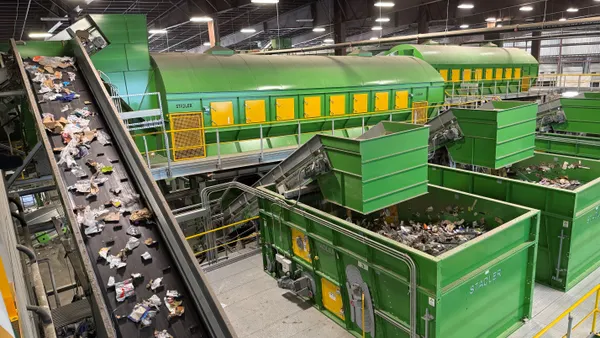Dive Brief:
-
California has adopted five new composting laws, which provide for or mandate the following: commercial organics recycling, tax exemptions for recycling and composting equipment, detailing organics infrastructure, recycling and composting reporting, and composting promotion, according to CalRecycle, the California Department of Resources Recycling and Recovery.
-
Below is a summary of each of the five laws:
-
AB 1826 requires businesses to set up recycling services, if they produce at least eight cubic yards of organic waste per week, beginning in April.
-
AB 199 provides businesses with tax exemptions as an allowance for recycling and composting equipment and expands the tax exclusion for recycled feedstock to make new products.
-
AB 876 requires jurisdictions to report necessary organics infrastructure and locations for new or expanded infrastructure. Counties and agencies will need to forecast their estimated organic waste over a 15-year period.
-
AB 901 names CalRecycle as the overseer of existing disposal reporting requirements, and updates reporting requirements for recycling, composting and solid waste disposal facilities.
-
AB 1045 requires CalRecycle and other state agencies to develop and implement policies to divert organic waste from landfills and to promote uses for the material.
-
Dive Insight:
The new composting laws are intended to help California move toward its 75% recycling goal by 2020, and to measure its progress as it reaches for this objective. CalRecycle is confident the legislation will serve as a motivational vehicle and boost the state economically.
"These new laws encourage innovation and strengthen California’s role as the nationwide leader in sustainable living," said CalRecycle Director Scott Smithline in a press release.
“Not only will this effort create new jobs, but it will reduce the amount of readily recyclable materials and organic waste that get sent to landfills and turn these valuable materials into new products, compost, fertilizers and biofuels instead."
One Oxnard, CA company is already leading the way, having launched an organics recycling site in Chino, CA, with the goal of producing 50,000 tons of 100% organic compost annually.














